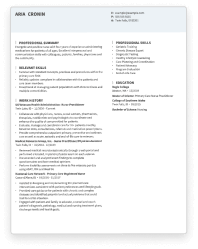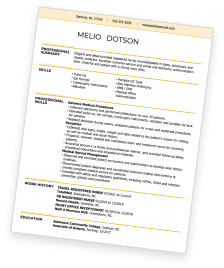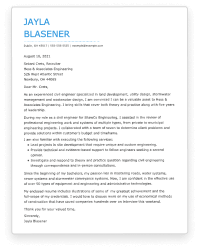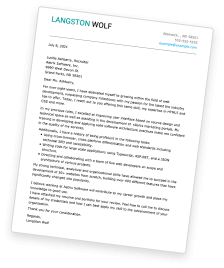Pharmaceutical Resumes: Overview
Professionals in the pharmaceutical field play a crucial role in the research, development, and distribution of life-saving medications.
Some pharmaceutical job titles include:
- Pharmacist
- Laboratory Technician
- Pharmacy Manager
- Pharmaceutical Sales Representative
- Research Scientist
Attention to detail, strong analytical abilities, and in-depth knowledge of pharmaceutical regulations are crucial for any pharmaceutical profession. Such skills must be showcased on a resume if it is to be effective.
Take advantage of our expertly crafted examples to enhance your pharmaceutical resume. Explore our full library of customizable resume examples and downloadable templates, or use our online resume builder, and get started on your next job application today!
Pharmaceutical Resume Example: Clinical Pharmacist
Are you searching for the perfect example of a pharmaceutical resume? Then take a look at this clinical pharmacist resume sample that does a great job showcasing qualifications.
-
Professional Design:
Clean, organized sections and bullet points ensure easy readability, while the use of traditional fonts gives this resume example an air of professionalism.
-
Quantifiable Experience:
This pharmacist resume example showcases relevant job experience in reverse chronological order and provides quantifiable achievements to underscore unique value.
-
Relevant Qualifications:
The resume emphasizes relevant pharmaceutical skills, educational background and licenses, making it tailored to a pharmacist position.
-
Professional Summary:
A well-crafted professional summary provides a snapshot of the candidate's qualifications, noting several relevant skills and traits in one brief statement.
Pharmaceutical Resume Example: Hospital Pharmacist
With this pharmaceutical resume example, you can see how the hospital pharmacist candidate focuses on the most relevant qualifications to engage the reader.
-
Modern Layout:
The visually appealing format of this resume, especially with its subtle use of color and organization, draws attention to the candidate’s pharmaceutical skills.
-
Combination Format:
The resume showcases relevant skills and job experience using a well-organized combination resume format. This is a great choice for anyone with a few years of relevant job experience who wants to bring attention to specific skills and abilities.
-
Detailed Content:
This pharmacist resume example delves into technical skills, relevant qualifications, and a detailed work history. It showcases previous job roles and achievements, demonstrating value to potential employers.
-
Engaging Summary:
The professional summary effectively highlights the candidate's strengths and experience. It also uses powerful descriptive language like “energetic” and “experienced” to make a positive first impression.
How to Write a Pharmaceutical Resume: A Step-by-Step Guide
Crafting a compelling pharmaceutical resume requires attention to detail and industry-specific knowledge, so follow our comprehensive step-by-step guide to create an outstanding document.
-
Choose a Format:
Choose the best resume format to highlight your skills and experience to potential employers. Consider options such as chronological, functional, and combination resumes. Recent graduates entering the pharmaceutical field may prefer a functional resume that focuses on skills and education. However, a chronological or combination format is more appropriate for someone with several years of work experience.
-
Contact Information:
Place your name and contact information at the top of the page where it is easy to find. Ensure your contact information is accurate and up-to-date. This section should include your name, phone number, email address, and LinkedIn profile if you have one.
-
Summary or Objective:
Write a brief but impactful statement introducing yourself to potential employers. A resume summary will provide more insight on experience, while an objective statement focuses on the interest and passion for the position. In either case use powerful action words to highlight skills and experience most relevant to the job posting. For more tips on crafting a statement, visit our summary and objective pages.
-
Work History:
Detail your previous work experience, highlighting key achievements and responsibilities. Use bullet points to provide details about your previous job roles, highlighting previous pharmacy experience related to the job you are interested in. Some jobs require a certain amount of practical experience. A detailed work history is necessary to demonstrate your qualifications for the position.
-
Skills:
List your relevant hard skills, like secure medication storage or insurance verification. Also include soft skills such as communication, empathy or problem-solving. Technical skills and interpersonal abilities are necessary to succeed in a pharmaceutical job.
-
Education:
Include your educational background, emphasizing relevant degrees, certifications, and licenses. Some pharmaceutical jobs require a doctorate in pharmacy (PharmD) and also have state licensing requirements.
-
Additional Sections (optional):
Consider adding sections highlighting volunteer experience, awards, or relevant extracurricular activities if space allows. But remember to keep your content aligned with the pharmacy job you are applying for.
Key Skills and Certifications For Pharmaceutical Resumes
In the pharmaceutical industry, possessing the right skills and certifications is crucial to success. Employers are looking for hard skills and soft skills in potential employees, so make sure you have the right ones on your resume.
Top 5 Hard Skills for Pharmaceutical Resumes
- Regulatory Compliance: Regulatory compliance is vital in the pharmaceutical industry to ensure that products meet all legal and safety requirements. Including this skill on your resume demonstrates your commitment to maintaining high-quality drug development and distribution standards.
- Clinical Research: Clinical research involves designing and conducting experiments to test new drugs and treatments. Mentioning this skill showcases your ability to contribute to developing innovative pharmaceutical solutions.
- Pharmacovigilance: Pharmacovigilance is the practice of monitoring the safety of pharmaceutical products post-market. Highlighting this skill indicates your understanding of patient safety and your role in identifying and reporting adverse drug reactions.
- Data Analysis: Data analysis skills are essential for interpreting clinical trial results, patient data, and drug efficacy. Including this skill demonstrates your ability to make informed decisions and drive improvements in pharmaceutical processes.
- Quality Assurance: Quality assurance ensures that pharmaceutical products meet established quality standards. Listing this skill on your resume underscores your dedication to maintaining product integrity and patient well-being.
Top 5 Soft Skills for Pharmaceutical Resumes
- Communication: Effective communication is crucial in pharmaceutical roles, whether it’s collaborating with a research team, explaining drug information to patients, or reporting findings to regulatory agencies. Highlighting this skill emphasizes your ability to convey complex information clearly and professionally.
- Attention to Detail: Attention to detail is vital in pharmaceuticals, where precision is required to avoid errors that could harm patients. Including this skill on your resume shows your commitment to accuracy and safety.
- Teamwork: Pharmaceutical professionals often work in interdisciplinary teams. Mentioning your teamwork skills demonstrates your ability to collaborate effectively with colleagues from various backgrounds, ensuring successful drug development and distribution.
- Problem-Solving: Problem-solving skills are valuable for addressing unexpected drug development or manufacturing challenges. This skill indicates your capacity to adapt and find solutions in complex situations.
- Adaptability: The pharmaceutical industry is constantly evolving. Highlighting adaptability on your resume signals your willingness to embrace change, stay updated with industry trends, and thrive in a dynamic environment.
Top 5 Certifications for Pharmaceutical Resumes
- Board-Certified Pharmacotherapy Specialist (BCPS): BCPS certification signifies your expertise in pharmacotherapy, demonstrating your commitment to excellence in clinical pharmacy practice.
- Regulatory Affairs Certification (RAC): RAC certification showcases your knowledge of regulatory requirements and compliance, essential for ensuring pharmaceutical products meet legal standards.
- Certified Clinical Research Professional Certification (CCRP): CCRP certification validates your proficiency in clinical research, an essential skill for those involved in drug development and clinical trials.
- Certified Data Management Professional (CDMP): CDMP certification highlights your data management skills, which are critical for maintaining accurate and reliable pharmaceutical data.
- Certified Pharmaceutical GMP Professional (CPGP): CPGP certification emphasizes your understanding of good manufacturing practices (GMP) in the pharmaceutical industry, which is essential for ensuring product quality and safety.
Enhance your pharmaceutical resume with qualifications, including technical and computer skills, and certifications to demonstrate your expertise.
Helping Job Seekers Like You
10 Tips For Writing A Pharmaceutical Resume
- Tailor Your Resume: Customize your resume for each pharmaceutical job application by aligning your qualifications and experiences with the position’s specific requirements. For example, if you’re applying for a clinical research role, emphasize your relevant research experience and skills in your resume.
- Use Action Verbs: Begin your bullet points with strong action verbs that effectively convey your accomplishments and responsibilities. For instance, instead of writing “Responsible for conducting experiments,” you can say “Conducted experiments to evaluate drug efficacy.”
- Quantify Your Achievements: Provide quantifiable metrics whenever possible to illustrate the impact of your work. For example, “Increased medication adherence by 20% through patient counseling” demonstrates a tangible achievement.
- Highlight Relevant Skills: Prioritize showcasing skills directly relevant to the pharmaceutical industry, such as regulatory compliance, data analysis, or clinical research techniques.
- Be Concise: Keep your pharmaceutical resume focused on the most essential information. Aim for brevity while ensuring that your key qualifications stand out. An effective resume should be at most 1 or 2 pages long.
- Proofread Carefully: Thoroughly proofread your resume to eliminate typos, grammatical errors, and formatting issues. Mistakes can create a negative impression and hurt your chances of getting hired.
- Include Keywords: Incorporate keywords from the job description into your resume. ATS (Applicant Tracking System) software often scans resumes for these keywords to filter candidates, so including them can improve your chances of passing this initial screening.
- Showcase Certifications: If you have relevant certifications, prominently display them on your resume. Certifications such as BCPS or RAC demonstrate your expertise and commitment to pharmaceutical standards.
- Include a Professional Summary: Begin your resume with a well-crafted professional summary or objective statement. This section provides a brief snapshot of your qualifications and career goals, immediately grabbing the recruiter’s attention.
- Seek Feedback: Before finalizing your resume for a pharmaceutical job, seek feedback from mentors, colleagues, or professional resume reviewers. External input can help you identify areas for improvement and ensure your resume is polished and professional.


Save Time With Hloom's Resume Builder
Key Takeaways
Crafting an effective pharmaceutical resume requires attention to detail and customization to the specific job posting.
Highlighting quantifiable achievements, relevant skills and necessary licenses or credentials is crucial to standing out from the competition.
Choose a resume format that suits your background, pharmaceutical experience and the specific job you're targeting.
Include a thorough work history that details your industry-specific skills to significantly enhance your resume.
Show interest in the position and the employer by tailoring your resume for each application. Include keywords from the job posting when possible to increase your chances of success.
Save Time With Hloom's Cover Letter Builder


Pharmaceutical Resume FAQ
Citations
- Harvard University Career Services. 23 Resume Tips for 2023. January 2023.
- Northeastern University. 'What Can You Do with a PharmD Degree?' January 2022.




